Table Of Contents
Table of Contents
Oil or butter better for roasting turkey is a debate that resonates with many home cooks. Roasting a turkey is often the centerpiece of any holiday gathering, making it one of the most important dishes you’ll prepare all year. Whether you’re hosting Thanksgiving, Christmas, or a Sunday family dinner, the question remains at the forefront of your planning. Achieving the perfect turkey can feel like a culinary triumph, and the choice between oil and butter plays a key role in its success.
But here’s the catch—what you coat your turkey with can make or break its flavor and texture. The choice between oil and butter sparks endless debates in kitchens around the world. Do you want a rich, buttery flavor that melts in your mouth? Or are you aiming for that golden, crispy skin that oil is famous for?
The answer may not be as simple as picking one over the other. When evaluating oil or butter better for roasting turkey, your cooking goals, flavor preferences, and even dietary considerations come into play. In this article, we’ll break down everything you need to know about using oil and butter for roasting turkey. Plus, we’ll discover whether combining the two might be the ultimate secret to turkey perfection.
The Importance of Roasting Turkey Right
The process of roasting a turkey isn’t only about cooking meat, it’s about creating a memorable experience. From the golden-brown, crispy skin to the soft and juicy meat, each bite should be a joy to be celebrated. But getting to the perfect level begins with the right fat. Oil or butter?
Understanding the Role of Fat in Roasting
Fat plays an essential part in roasting, providing flavor, and moisture, and aiding in browning. It acts as a barrier and keeps the turkey moist while making the skin crispy. The choice between oil and butter will depend on what qualities you are most concerned about.
Benefits of Using Oil for Roasting Turkey
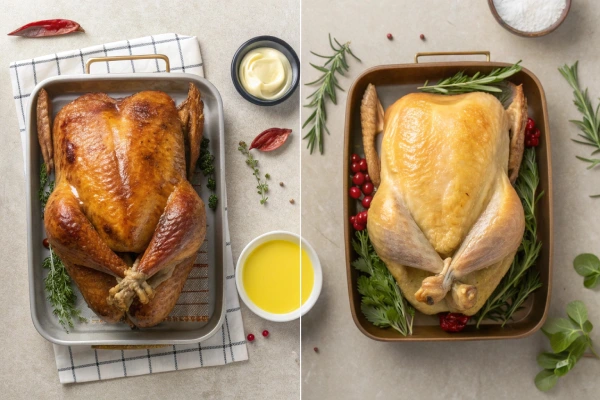
Oil Provides High Smoke Point
One of the biggest benefits of oil is its high smoke. In contrast to butter, oil can endure high temperatures of roasting without burning, making it possible to even cook. If you’re looking for an easy method of roasting, oil may be the best choice.
Crispy Skin and Moist Interior
Oil forms an extremely thin layer on the skin, securing moisture and promoting crispness. If you’re looking for that photo-perfect crunch, oil could be the best option for you.
Related read: For more ideas for preparing a delicious turkey, take a look at the recipe this roast recipe. Turkey and Herb Butter recipe. Timeless holiday recipe.
Neutral Flavor Improves Seasonings
Oils such as canola or vegetables are neutral in flavor and let spices and herbs shine, without obscuring the flavor of the turkey. This neutrality makes oils adaptable to different recipes.
Drawbacks of Using Oil
Limited Flavor Compared to Butter
Although oil can do its job perfectly, it lacks the rich aroma and flavor that butter naturally adds to the plate.
Doesn’t Add Richness
If you’re looking for a luxurious flavor, oil could not meet the expectations.
Benefits of Using Butter for Roasting Turkey
Rich Flavor for a More Indulgent Taste
Butter has an unbeatable flavor. It absorbs into the meat, forming layers of lusciousness that lift the turkey’s quality to gourmet. Butter is a go-to for those looking to impress.
Golden, Aromatic Crust
The solids of butter are beautifully browned, creating a beautiful golden crust. This appealing visual appearance often makes butter the best option for your holiday meals.
Learn More Do you want to know how butter can be used on the skin of your turkey? Check out Should I Put Butter Under the Skin of My Turkey? Pros and Cons Revealed.
Simple Application with Soft Texture
Butter is easily spreadable and can be massaged beneath the skin for additional flavor and moisture straight into meat.
Drawbacks of Using Butter
Low Smoke Point Risking Burning
It has lower smoke levels than oils. This means it could burn when the oven becomes too hot. So, careful control of temperature is vital.
May Create Greasy Skin
The excessive use of butter can cause oily skin, not the desired crispness. It is important to be cautious to avoid this problem.
Comparing the Nutritional Profiles
It is generally a source of unsaturated fats. This makes it a healthier option for people who are trying to lower cholesterol. Butter, although much more nourishing, contains more saturated fats, and many prefer to cut down on it.
Which Works Better for Crispy Skin?
If crisp skin is on your list of priorities oil is a better choice due to its capacity to keep skin crisp without burning. However, mixing techniques may enhance the results.
What About Flavor?
For flavor lovers, butter wins hands down. The richness and aroma of butter make it perfect for scrumptious celebrations.
Mixing Oil and Butter: The Best of Both Worlds?
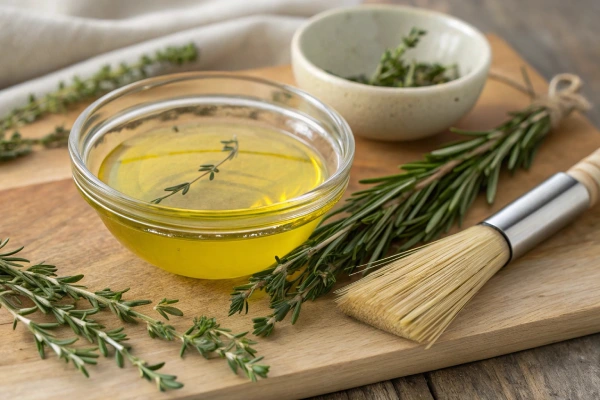
Why should you choose one over the other when you can get both? Combining butter and oil will allow you to take advantage of the high smoke point of oil and the delicious taste of butter. Combine the two for a balanced experience.
How to Apply Oil or Butter for the Perfect Roast
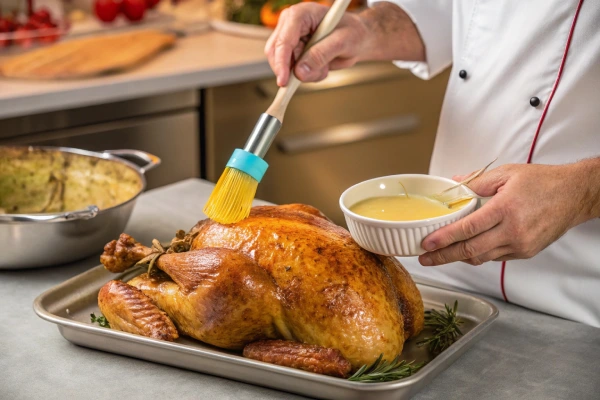
Brushing Method
Make use of a pastry brush to evenly cover the turkey, making sure that no areas are left unnoticed.
Injecting Butter for Moisture
Melt butter and inject it into the meat to add flavor.
Dry Rub it with oil and seasonings.
Mix the oil with spices and herbs and then rub it into your skin to get the best flavor.
Tips for Perfectly Roasting a Turkey
- Prepare your oven so that you cook evenly.
- Dry the turkey before applying any fats to aid in crisping the skin.
- Let the turkey rest for a few hours before carving to ensure that juices are retained.
Common Mistakes to Avoid
- Overbasting with butter can lead to greasy, flaky skin.
- The use of low-quality oil can alter the flavor.
- The turkey should not be covered for the initial roasting stage to prevent drying.
FAQs About Oil or butter better for roasting turkey
Is it better to put butter or oil on a turkey?
Butter adds rich flavor and helps crisp the skin, but it can burn. Oil has a higher smoke point for even browning. For the best of both, rub the turkey with oil and tuck herbed butter under the skin.
What do you put in the bottom of a roasting pan for a turkey?
Add chopped onions, carrots, celery, and garlic to the pan. These veggies elevate the turkey’s flavor, create aromatic drippings for gravy, and prevent the bird from sitting in pooled fat.
What is the secret to a moist turkey?
Brining! Soak the turkey in a saltwater solution (or dry-brine) overnight to lock in moisture. Cook to 165°F (use a meat thermometer!) and let it rest 30+ minutes before carving.
How does Gordon Ramsay keep the turkey moist?
Chef Ramsay slathers the turkey with herb butter under the skin, bastes it frequently with pan juices, and tents it with foil halfway through cooking. He also stresses resting time for juicy results.
Conclusion
Oil or butter better for roasting turkey – When you are roasting turkeys, both oil and butter bring distinctive advantages. If you’re looking for crispness and high smoke points, oil is the best option. However, for those who prefer the rich flavor and delicious texture, butter will not disappoint.
Why should you settle for just one? Some experienced chefs combine butter and oil to enhance the flavor and texture. When you do this, you will get all the benefits of two: a crispy, golden exterior that is complemented by delicious, mouthwatering flavors in every bite.
In the end, evaluating oil or butter better for roasting turkey comes down to your personal preferences, the cooking style, and the type of experience you wish to create. Whatever method you decide to use, the guidelines and tricks in this article will help you cook your turkey to delight your guests.
So regardless of whether you’re a beginner cook or an experienced chef, you can be confident the turkey you cook will be delicious, tasty, and beautiful this festive season!
Looking for more tasty recipes and cooking inspiration? Connect with us on Facebook at Dashtasty and become part of our foodie family.
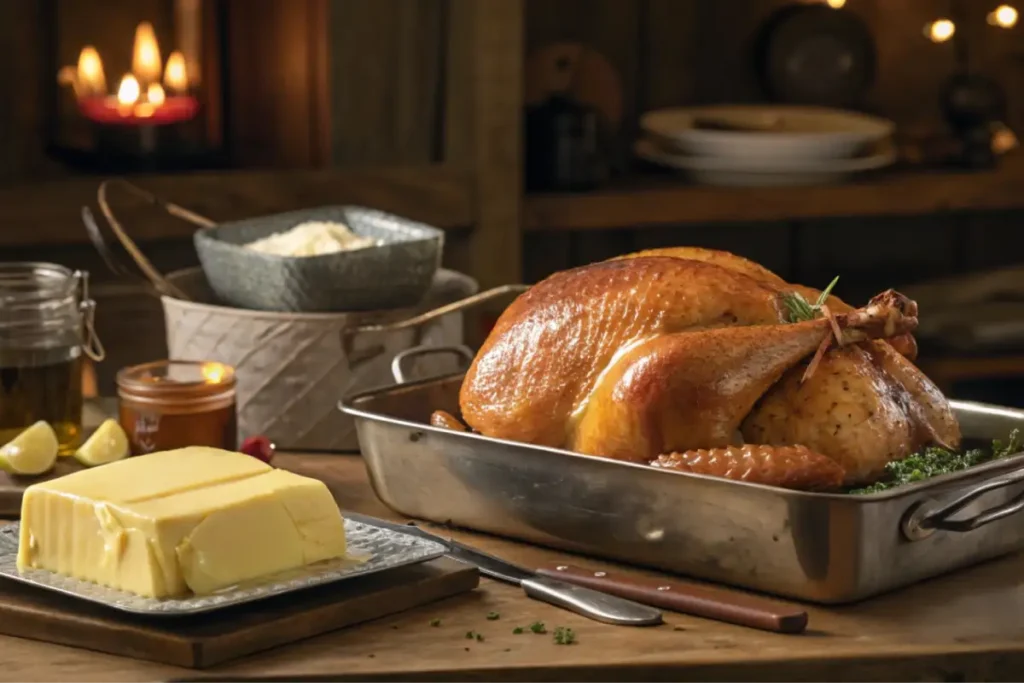

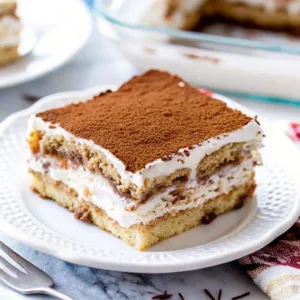
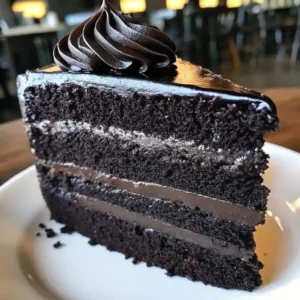
3 thoughts on “Is Oil or Butter Better for Roasting Turkey? Expert Guide”